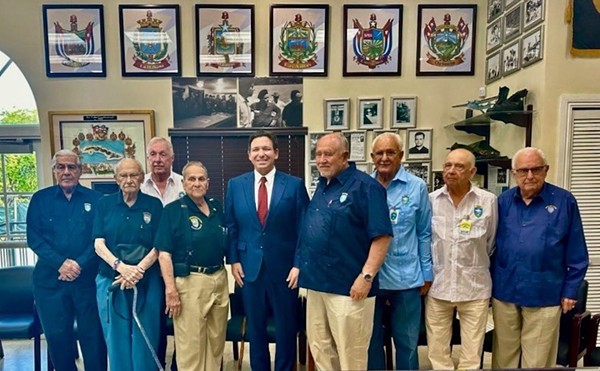Last Thursday and Friday, the Senate Armed Services Committee heard at times fascinating testimony on the "Don't Ask, Don't Tell" (DADT) 1993 policy that prohibits gay or lesbian Americans from serving openly in the military. But the real story is whether the Senate will vote on repealing it within the next couple of weeks, and are there the votes in the Senate to pass a measure?
Not if John McCain has anything to do with it. McCain, the ranking Republican on the Committee, wants to keep on holding more hearings on the matter, certainly long enough to run out the clock in the current Congress, and he may be successful.
Last week's hearings came on the heels of a long anticipated (and much disputed in conservative circles) report on implementing the repeal of DADT. All told, only one member of the Joint Chiefs of Staff — Marine Corps. Commandant General John Amos — has been critical of that report.
Sunday morning on ABC's This Week, host Christiane Amanpour held a provocative discussion on the topic, particularly when she focused on one of the 38 nations that already allows openly gays in the military — our allies across the pond — Great Britain.
Lieutenant Colonel Bob Maginnis, a regular presence on cable news and a man who served in the U.S. Army for 24 years, was ready to shoot down the "If England does it, isn't it okay?" argument:
MAGINNIS: Well, this particular piece that you just showed on foreign militaries — I work with foreign militaries every day, still do, and have for many years.
You know, it's — the U.S. military is about 18 times larger than the Brits. You know, to compare them to — you know, to us is like comparing an M1A1 tank to a Roman chariot.
AMANPOUR: But the issues are the same. The issues are the same.
MAGINNIS: No, the issues are fundamentally about privacy, about unit cohesion, about trust and confidence, about readiness, about, you know, retention, you know, recruitment. You look at all those.
Unfortunately, Christiane, the — the report that the Pentagon came out with, based upon a flawed survey, doesn't support that if you look at how they did the process. And, unfortunately, unless Congress does the right thing for the nation, you know, we're going to depend upon some pretty bad research that scientists are going to disagree with.
















